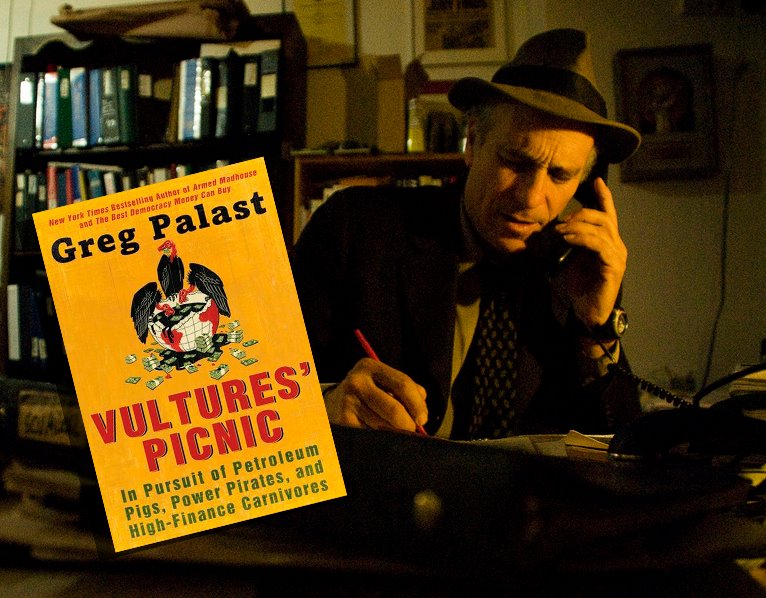For Crooks and Liars
Tonight on Air America: Greg Palast joins Crooks and Liars' John Amato, guest host of "Clout!" on your local progressive station or streaming live on AirAmericaRadio.com at 9pm Eastern.
There's another floater. Four years on, there's another victim face down in the waters of Hurricane Katrina, Dr. Ivor van Heerden.
"By midnight on Monday the White House knew. Monday night I was at the state Emergency Operations Center and nobody was aware that the levees had breeched. Nobody."
On the night of August 29, 2005, van Heerden was shut in at the state emergency center in Baton Rouge, providing technical advice to the rescue effort. As Hurricane Katrina came ashore, van Heerden and the State Police there were high-fiving it: Katrina missed the city of New Orleans, turning east.
What they did not know was that the levees had cracked. For crucial hours, the White House knew, but withheld the information that the levees of New Orleans had broken and that the city was about to drown. Bush's boys did not notify the State of the flood to come which would have allowed police to launch an emergency hunt for the thousands that remained stranded.
"Fifteen hundred people drowned. That's the bottom line," said von Heerden. He shouldn't have told me that. The professor was already in trouble for saying, publicly, that the levees around New Orleans were no good, too short, by 18". They couldn't stand up to a storm like Katrina. He said it months before Katrina hit - in a call to the White House, and later in the press.
So, even before Katrina, even before our interview, the professor was in hot water. Van Heerden was told by University officials that his complaints jeopardized funding from the Bush Administration. They tried to gag him. He didn't care: he ripped off the gag and spoke out.
It didn't matter to Bush, to the State, to the University, that van Heerden was right- devastatingly right. Exactly as van Heerden predicted, the levees could not stand up to the storm surge.
In 2006, I met van Heerden in his office at the University's hurricane center; a cubby filled with charts of the city under water. He's a soft-spoken, even-tempered man, given to understatement and academic reserve. But his words were hand grenades: the Bush White House did nothing about the levees, despite warning after warning.
Why? A hurricane is an Act of God. But a levee failure is an Act of Bush - of the federal government. Under the Flood Control Act of 1928, once the levees break, it's Washington's responsibility to save lives -- and to compensate the victims for lost homes and lost loved ones.
By telling me this, the professor had to know he was putting his job on the line. This week marks the fourth anniversary of the drowning of New Orleans.
Shakoor Aljuwani of the Rebuilding Lives Coalition reminds me it is also the fourth year of exile for more than half of the low-income Black residents who once lived in the Crescent City. In the Lower Ninth Ward, 81% have yet to return.
And it marks the end of Dr. van Heerden's career at LSU. They got him. Once the network cameras were turned away from New Orleans, as America and Anderson Cooper shifted attention to Brad and Angelina and other news, the University put an end to Dr. van Heerden. "In 2006 they started the nonsense - they stopped me from teaching. They tried last year to get faculty to vote me out."
His contract was not renewed; he was forced out too, dumped along with the chief of the Hurricane Center who led the academics who supported van Heerden's research. The Man Who Was Right was fired.
(Note: You can view every article as one long page if you sign up as an Advocate Member, or higher).






